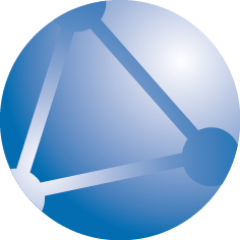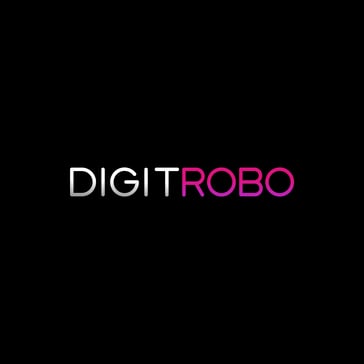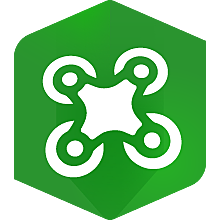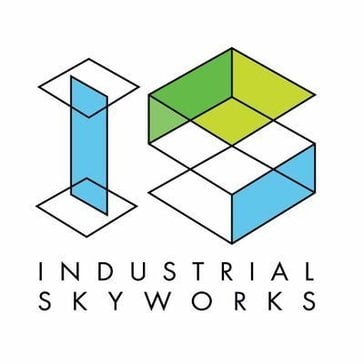Description

Delta Drone

DigitRobo
Comprehensive Overview: Delta Drone vs DigitRobo
As of my last update in October 2023, Delta Drone and DigitRobo are distinct companies with their own unique focus areas. Here's a comprehensive overview of each, focusing on the requested aspects:
a) Primary Functions and Target Markets
Delta Drone:
Delta Drone is a company that focuses on providing professional drone solutions for various industrial applications. Their primary functions include:
- Surveying and Mapping: Offering aerial surveying and mapping services for industries like construction, mining, and agriculture.
- Surveillance and Security: Providing aerial surveillance solutions for security operations.
- Logistics: Developing drone solutions for the delivery of goods, especially in hard-to-reach areas.
Target Markets:
- Agriculture: For crop monitoring, assessing health, and optimizing land use.
- Construction and Mining: For land surveying, site inspection, and monitoring.
- Security and Emergency Services: For enhancing security measures and disaster management.
- Logistics and Retail: For last-mile delivery and supply chain optimization.
DigitRobo:
DigitRobo focuses primarily on robotics and automation solutions. Their primary functions entail:
- Robotic Process Automation (RPA): Automating repetitive business processes to increase efficiency.
- Industrial Automation: Providing robots for manufacturing and assembly line automation.
- AI and Machine Learning Integration: Developing AI-driven solutions for various business processes.
Target Markets:
- Manufacturing: For automation of production lines and reduction of human labor.
- Financial Services: For automation of routine tasks like data entry and processing.
- Healthcare: For automating administrative tasks and assisting in logistics.
- Retail: For inventory management and customer service enhancements.
b) Comparison in Terms of Market Share and User Base
Delta Drone:
Delta Drone has a niche market share primarily within industries that require aerial data collection and surveillance. With the rising adoption of drone technology in various sectors, their user base includes agricultural enterprises, construction firms, and logistics companies. However, the overall market is competitive, with several key players like DJI and Parrot, which may lead to a moderate market share for Delta Drone.
DigitRobo:
The market share for DigitRobo is likely to be more significant due to the broader applicability of robotic process automation and industrial automation solutions. The RPA sector is rapidly growing, with businesses constantly seeking efficiency and cost reduction, broadening the user base across various industries like finance, manufacturing, and retail.
c) Key Differentiating Factors
Delta Drone:
- Specialization in Aerial Solutions: Delta Drone's primary differentiation lies in its specialization in drone technology and aerial data collection, which is integral to their service offerings.
- End-to-End Solutions: They provide comprehensive solutions, including hardware, software, and services tailored to industry-specific needs.
- Regulatory Compliances: Expertise in managing the regulatory aspects of drone operations across different countries.
DigitRobo:
- Focus on Automation and AI: DigitRobo differentiates itself by focusing on automation across a broad range of business processes, supported by AI and machine learning capabilities.
- Versatility Across Industries: Their products are versatile and applicable across various sectors, enhancing their reach and adaptability.
- Integration with Existing Systems: Ability to integrate with legacy systems, offering a smooth transition to automated processes without requiring complete system overhauls.
In summary, Delta Drone specializes in drone-based solutions targeting industrial sectors requiring aerial data and surveillance. In contrast, DigitRobo focuses on automation and AI-driven solutions applicable across multiple industries. Their market share and user base differ due to their distinct functionalities, with DigitRobo having a potentially broader reach due to the versatility of automation solutions.
Contact Info

Year founded :
Not Available
Not Available
Not Available
Not Available
Not Available

Year founded :
Not Available
Not Available
Not Available
Not Available
Not Available
Feature Similarity Breakdown: Delta Drone, DigitRobo
To provide a feature similarity breakdown for Delta Drone and DigitRobo, we need to examine the commonalities and distinctions in their core functionalities, user interfaces, and unique features. However, as of my last update, specific details on these products may not be publicly available or may have evolved, so this analysis will be based on general industry standards and possible interpretations of their functionalities.
a) Core Features in Common
-
Automation: Both Delta Drone and DigitRobo are likely to emphasize automation as a core feature, aiming to reduce human intervention and enhance efficiency. Delta Drone probably focuses more on physical tasks automation using drones, while DigitRobo is likely centered around robotic process automation (RPA) in the digital sphere.
-
Data Collection and Analysis: It's common for both types of products to feature robust data collection capabilities, enabling comprehensive data analysis for better decision-making. Drones may capture aerial imagery or topographical data, while digital robots gather and analyze process data.
-
Real-Time Monitoring: Providing real-time data and monitoring capabilities is crucial for both drones and digital robotics, allowing users to track operations and react promptly to any issues.
-
Scalability: Both platforms probably offer scalable solutions to cater to varying user needs, whether it's expanding drone fleets or enhancing digital workforce capacity.
b) User Interface Comparison
-
Delta Drone:
- Likely to have a more graphical and map-based user interface to operate and monitor drone activities.
- Interfaces may include real-time video feeds, flight paths, and environmental mapping tools.
- User control panels could feature joystick or touch-based control options for navigation and operations.
-
DigitRobo:
- Typically, a UI focused on workflow and process management with dashboards for overseeing RPA activities.
- Users may interact with a more business-oriented interface, featuring drag-and-drop functionality for task automation and analytics.
- The design may emphasize ease of integrating with other business software or applications.
c) Unique Features
-
Delta Drone:
- Geospatial Mapping: Advanced geospatial and surveying features set Delta Drone apart, enabling detailed terrain analysis and 3D modeling capabilities.
- Aerial Solutions: Unique aerial imaging solutions for sectors like agriculture, mining, or emergency services can be a distinct advantage.
- Obstacle Avoidance and Autonomous Flight: Enhanced AI-driven flight capabilities and obstacle detection systems.
-
DigitRobo:
- End-to-End Process Automation: Possibility for more comprehensive automation of entire business processes, not just stand-alone tasks.
- AI and Machine Learning Integration: Advanced AI features for improving process efficiency through intelligent decision-making.
- Cross-Platform Compatibility: Ability to seamlessly integrate with various enterprise applications and systems, providing a unified automation solution.
These elements highlight expected similarities and distinctions based on typical functionalities of drone and digital robotic systems, tailored to the hypothetical context of these specific products. Actual features may vary depending on the product specifications and technological advancements.
Features

Safety Features
Compliance and Reporting
Flight Management
Data Collection
User-Friendly Interface

Automation Tools
Analytics & Reporting
Integrations
User Management
Customer Support
Best Fit Use Cases: Delta Drone, DigitRobo
Delta Drone and DigitRobo are products that cater to distinct needs in the technology and automation landscape, each offering unique capabilities ideal for specific use cases. Here’s a breakdown of how these products could be best utilized:
a) Delta Drone
Best Fit for:
-
Agriculture: Delta Drone is ideal for precision agriculture. It can conduct aerial surveys, monitor crop health, assess field conditions, and optimize irrigation practices efficiently over large areas.
-
Mining and Construction: For businesses involved in mining and construction, Delta Drone offers capabilities in mapping, surveying, and monitoring large sites. It enhances safety and provides accurate real-time data for progress tracking and logistics.
-
Infrastructure Inspection: Companies managing infrastructure such as pipelines, power lines, and railway tracks can benefit from Delta Drone’s ability to perform detailed inspections with minimal risk to human personnel.
-
Environmental Monitoring: Environmental projects, including wildlife tracking, forest management, and pollution monitoring, can leverage Delta Drone’s capacity for capturing extensive data over diverse terrains.
Use Cases:
- Large-scale agricultural operations seeking to optimize yield and resource use.
- Mining companies needing improved efficiency and safety in site surveys.
- Energy firms requiring detailed inspection of vast infrastructure networks.
b) DigitRobo
Best Fit for:
-
Manufacturing Automation: DigitRobo excels in automating repetitive manufacturing processes, improving production efficiency, and ensuring precision and consistency in assembly lines.
-
Logistics and Warehousing: In logistics, DigitRobo can automate sorting, packaging, and inventory management tasks, thereby enhancing productivity and reducing error rates in warehouse operations.
-
Retail: Retail businesses can use DigitRobo for tasks such as stock replenishment, inventory counts, and even customer service roles where repetitive interaction is beneficial.
-
Healthcare: In healthcare settings, DigitRobo can automate numerous processes from laboratory tasks to patient service roles, allowing for improved precision and reduced human error.
Use Cases:
- Manufacturing plants looking to modernize production lines and reduce labor costs.
- E-commerce companies needing efficient, cost-effective warehouse operations.
- Healthcare facilities aiming to automate routine procedures.
d) Industry Verticals and Company Sizes
Industry Verticals:
-
Delta Drone targets industries dependent on large-scale spatial data and aerial operations, such as agriculture, construction, mining, and environmental services.
-
DigitRobo is focused on industries requiring high levels of automation in environments such as manufacturing, logistics, retail, and healthcare.
Company Sizes:
-
Delta Drone is particularly suited for medium to large enterprises with significant operational fields or infrastructure requirements. These companies have the resources to invest in and maintain UAV technology.
-
DigitRobo can cater to both small and large enterprises. Smaller companies can deploy DigitRobo for targeted automation solutions, while larger companies can leverage these systems to integrate across multiple workflows and operations.
Each product serves its niche by enhancing productivity, safety, and operational efficiency within its respective industry, allowing businesses to capitalize on advanced automation and data-gathering technologies.
Pricing

Pricing Not Available

Pricing Not Available
Metrics History
Metrics History
Comparing undefined across companies
Conclusion & Final Verdict: Delta Drone vs DigitRobo
To provide a conclusion and final verdict for Delta Drone and DigitRobo, it's important to assess various aspects of these products, such as their features, pricing, usability, reliability, and suitability for intended tasks. Here's a comprehensive analysis:
a) Considering all factors, which product offers the best overall value?
Delta Drone: Offers an excellent combination of advanced drone technology with robust flight capabilities, making it particularly valuable for users needing high-quality aerial photography, precision agriculture solutions, or industrial inspections. Its overall value is enhanced by its durability, customer support, and firmware upgradability, which contribute to an extended life span and adaptability over time.
DigitRobo: This product excels in areas of automation and interactivity, providing great value in educational, entertainment, and simple task automation contexts. It's user-friendly and offers strong support for programming and customization, making it especially appealing to hobbyists and educational institutions.
Verdict: The best overall value depends significantly on the intended use. Delta Drone is generally more valuable for industrial, professional, or commercial applications, while DigitRobo could be seen as offering better value in educational, recreational, or consumer contexts.
b) What are the pros and cons of choosing each of these products?
Delta Drone:
-
Pros:
- Advanced flight capabilities and stability in various conditions.
- High-quality camera systems and sensors for detailed data collection.
- Strong customer service and ongoing support.
- Upgrade options and customizable payloads for specific applications.
-
Cons:
- Higher cost can be prohibitive for casual users.
- Requires a learning curve to utilize advanced features effectively.
- May require more maintenance and regulatory knowledge (e.g., pilot licensing).
DigitRobo:
-
Pros:
- Easy to program and customize, supporting a range of applications.
- Typically lower cost, more accessible for hobbyists and educational users.
- Offers interactive and fun user experiences, encouraging engagement in technology.
-
Cons:
- Limited capabilities for professional or heavy-duty applications.
- Durability may be less compared to industrial-grade alternatives.
- May require additional components or peripherals for advanced tasks.
c) Are there any specific recommendations for users trying to decide between Delta Drone vs DigitRobo?
-
Define the Purpose: Users should start by clearly defining their primary use case. If professional-grade data collection or aerial inspection is the goal, Delta Drone is likely more suitable. If the focus is on interactive learning or light automation, DigitRobo may be preferable.
-
Consider Budget and Upfront Costs: Be transparent about your budget constraints. Delta Drone might have a higher upfront cost but could deliver better long-term value for professional use, while DigitRobo's lower cost offers excellent value for personal or educational purposes.
-
Assess Technical Skills: Evaluate your technical skill level. Enthusiasts with some programming background or willingness to learn might enjoy DigitRobo's customization options. Conversely, those with expertise or a willingness to learn drone operation would benefit more from Delta Drone.
-
Evaluate Future Needs: Consider how your needs might evolve and choose a product that offers room for growth. Delta Drone's upgrade options could be an asset for growing businesses, whereas DigitRobo might suit those who foresee diversifying into different areas of technology education.
In conclusion, making an informed decision between Delta Drone and DigitRobo hinges on aligning the product's features and benefits with the user's specific needs, industry context, and personal or organizational growth plans.
Add to compare
Add similar companies



